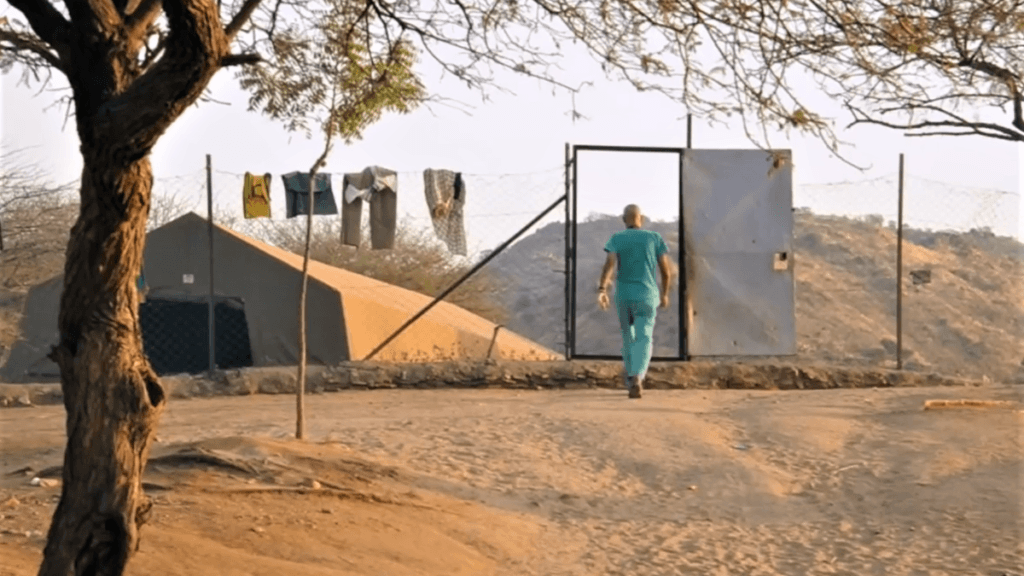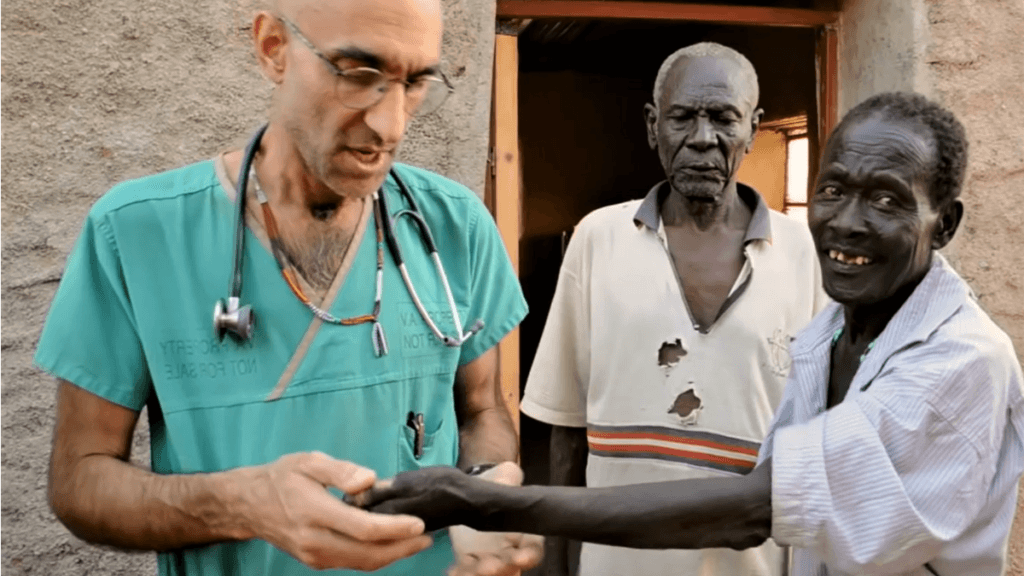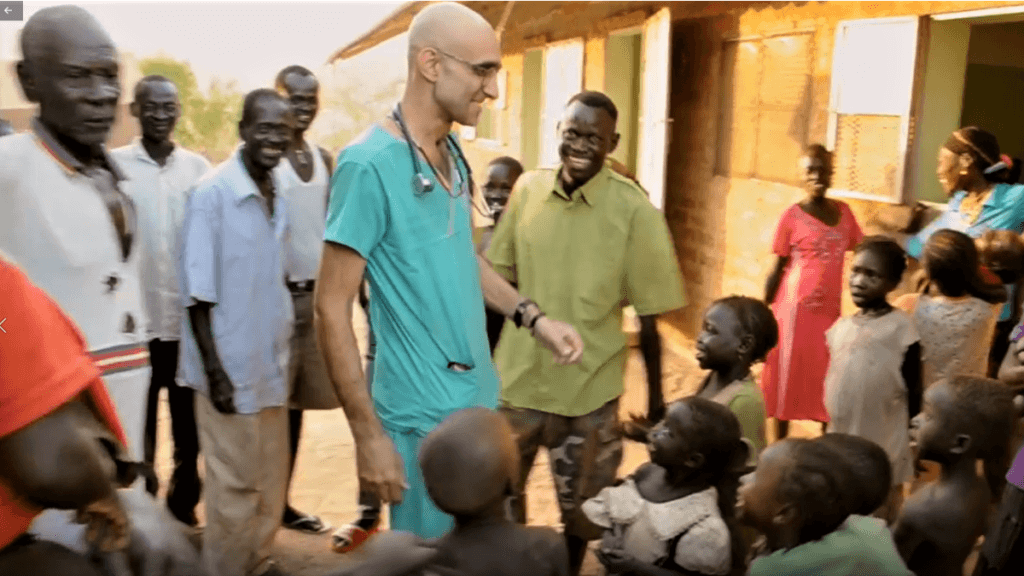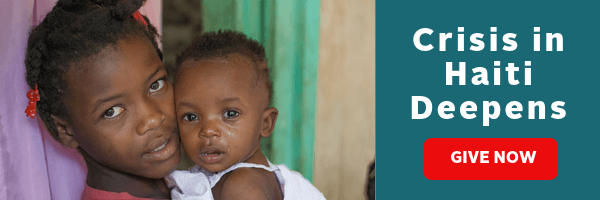Forever #Grateful – Your Catholic Weekly Reflection from CMMB
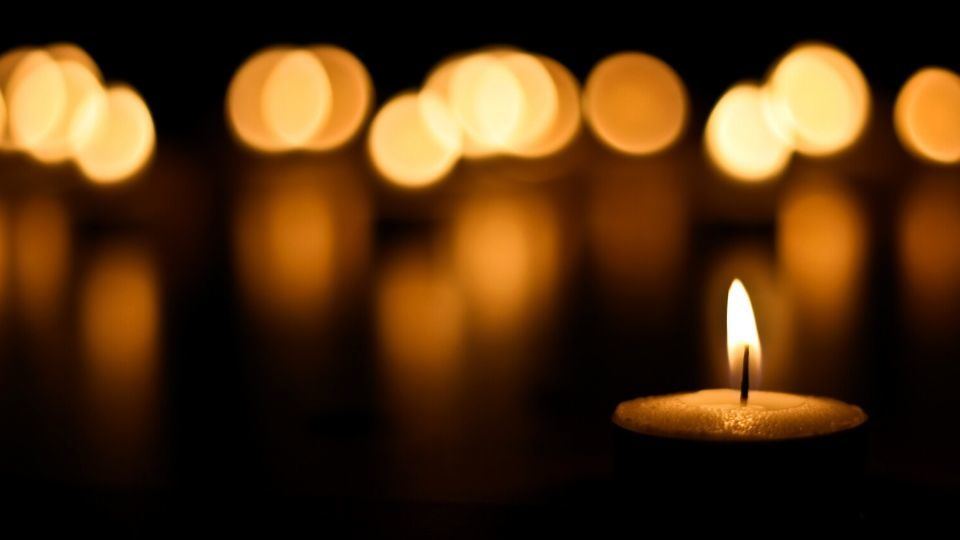
Stand up and go; your faith has saved you.
—Luke 17:19
In this Sunday’s Gospel, we hear how Jesus, on his way to Jerusalem where he was to die on the cross, healed 10 lepers. One of them, a Samaritan, returned to glorify God and thank him. In those days, Samaritans were looked down upon because of differences in their observance of Judaism. So it is significant that Jesus commended him for his faith. He told the man that by thanking God, his faith had saved him. We too can also find salvation by recognizing the gifts we have been given and in thanking our Lord for them.
Over 100 years ago, CMMB’s founder, Dr. Paluel Joseph Flagg, visited and worked with lepers, something we continue to do today. In the Nuba Mountains of Sudan, there is a leper colony—a whole village—near the Mother of Mercy Hospital. Our longest serving volunteer, Dr. Tom Catena, provides their medical care with a gentle touch and a generous heart.
Dr. Tom is the only physician and surgeon within 200 miles of the hospital, and he treats conditions ranging from malnutrition to wounds from bombings. But he has a special way to tend to those suffering from leprosy, which he describes below.
“The Nuba Mountains is one of the few pockets left in the world where there’s endemic leprosy. We have quite a few patients that are in the leprosy village, both adults and children. There are a lot of myths with leprosy that go way back. I mean, it’s in Leviticus, it’s in the bible. Moses gave a law—lepers have to be cast out of the village, live by themselves, they have to announce themselves when they come and ring a bell. It was terrible.
Leprosy causes extensive nerve damage. Look at his hands—this man, he’s got wasting of the muscle in his hand because all the nerve impulses to that muscle are gone. That’s called a claw hand. The nerve impulse is not there so the hand reduces in size automatically. He’s got some function, but he’s lost a lot of capacity in his hand.
The truth is that leprosy is contagious, but it’s not highly contagious. Leprosy is spread in the same way as tuberculosis. Both are micro bacteria that are spread by respiratory droplets. With both diseases you have to be in close contact with somebody for a significant amount of time to get it. You can’t get infected just by touching their hands or touching their skin lesions. Even if they cough on you, it takes a long time to get infected.
It’s very important to touch these people. In the west we’re taught to have almost a standoffish behavior with the patients. The doctor-patient relationship is very formal. But to joke with the patients, to touch them, is extremely important. These are people that have been rejected by society, they watch their bodies disintegrating. If you can come and touch them and shake their hands, pat them on the back, joke with them, it shows them they’re part of the human race, like anybody else.
When I was first in medical school, I was afraid of children, I was terrified of pediatrics. Finally, I got comfortable with them, and now I can’t imagine working here without pediatrics being part of what I’m doing. It’s sometimes they only thing that keeps me sane, that keeps me going.” —Dr. Tom Catena
By helping those who are most in need, Dr. Tom shows his gratitude for the gifts he has been given. His acts of kindness are quietly changing the world one person, one day at a time in remote Sudan. In today’s reading we see how faith can be found in surprising places. The Samaritan was not expected to show gratitude towards Jesus, and yet he was the only one of the 10 lepers that returned to thank him for being healed. For that he was saved. Let us take a moment to sit quietly today and find ways to thank God for the many wonderful gifts he has given us.
In grace and peace,
CMMB/Healthier Lives Worldwide
